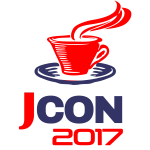Dear QF-Test users and interested parties,
QF-Test 4.1.6 is now available for download.
Topics of this edition of our newsletter:
1. QF-Test Version 4.1.6 Released
2. Next QF-Test Training Dates and Special Webinar
4. Release Notes for QF-Test Version 4.1.6
With best regards,
Your QFS Team
1. QF-Test Version 4.1.6 Released

Download-Link for QF-Test 4.1.6
This release comes with new Selenium WebDriver libraries that support the latest versions of Chrome and Firefox and fixes a few issues.
QF-Test 4.1.6 is going to be the last 4.1.* release. QF-Test 4.2 is receiving its final touches and due for release in the next few weeks.
The detailed list of differences between QF-Test version 4.1.5 to 4.1.6 can be found in the Release Notes in section 4 of this newsletter or online.
Training at QFS
We recommend to participate in our face-to-face training QF-Test training at QFS.
| Date | Language |
|---|---|
| November 28 - 30, 2017 | German |
| March 13 - 15, 2018 | German |
Training via Webinar
You can save travel time and expenses by participating in one of our trainings via webinar:
| Training via webinar | Date |
|---|---|
| Standard webinar training | February 05 - 08, 2018 |
| Company webinar training (exclusively for your company) | time by arrangement |
Special Webinar

Martin Moser continues his popular special webinars. A special webinar session lasts about 1.5 hours and costs 125 EUR (net) per participant. Reserve your seat via webinar@qftest.com or +49 8171 38648-10.
| Date | Content |
|---|---|
| December 05, 2017 (German version one day before) | Let QF-Test run... unattended test execution in continuous integration tools (e.g. Jenkins) or batch scripting |
| January 30, 2018 (German version one day before) | Uniting the best of several worlds - QF-Test and 3rd party tools: JUnit, Selenium, SOAP/REST, image based testing etc. (time by arrangement) |
And of course you can always book training or consulting individually for you and your company or on-site.

On Thursday 19th of October Fabian Klaffke talked about experiences in a client project: “Keyword-driven testing and variant management – practical experience with Klaros-Testmanagement and QF-Test”. This solution workshop was part of the 25th software QA day of imbus in Frankfort, the leading conference concerning software quality and software testing in Germany.

Dr. Pascal Bihler of QFS focused on the developer’s side with his speech: “It works, but does it work the way it should?” – GUI test automation for Vaadin projects” on the Java Community Conference JCON in Dusseldorf which took place for the first time. Mr. Bihler had a whole cinema hall on Wednesday 25th of October for his presentation. From the script: With RapidClipse you can create extensive projects either as web application, hybrid mobile app or classical Java desktop app efficiently and conveniently. HTML5 and Vaadin are the web technologies therefore. And with QF-Test the testing of such projects is also fun.
4. Release Notes for QF-Test Version 4.1.6
New Features:
- The embedded Selenium API was updated to version 3.6.0, ChromeDriver to version 2.33 (with support up to Chrome version 62), and Mozilla GeckoDriver to version 0.19 which adds support for Firefox 55 - 57.
- Window and Panel nodes from the supported AJAX toolkits now have a dedicated title check.
Bugs Fixed:
- A workaround was implemented for a bug in the Linux JRE 8_152 that could cause QF-Test to hang during startup.
- A Swing based SUT started remotely via the procedure qfs.daemon.startRemoteSUT did not connect if the option Connect via QF-Test agent was deactivated in the daemon.
- Support was added for interaction with the JavaFX HTMLEditor component, including checks for its raw HTML code and the displayed text.
- When recording HTTP requests, some special characters were not saved with the correct encoding.
- Handling of frames in the SWT embedded Browser now works again.